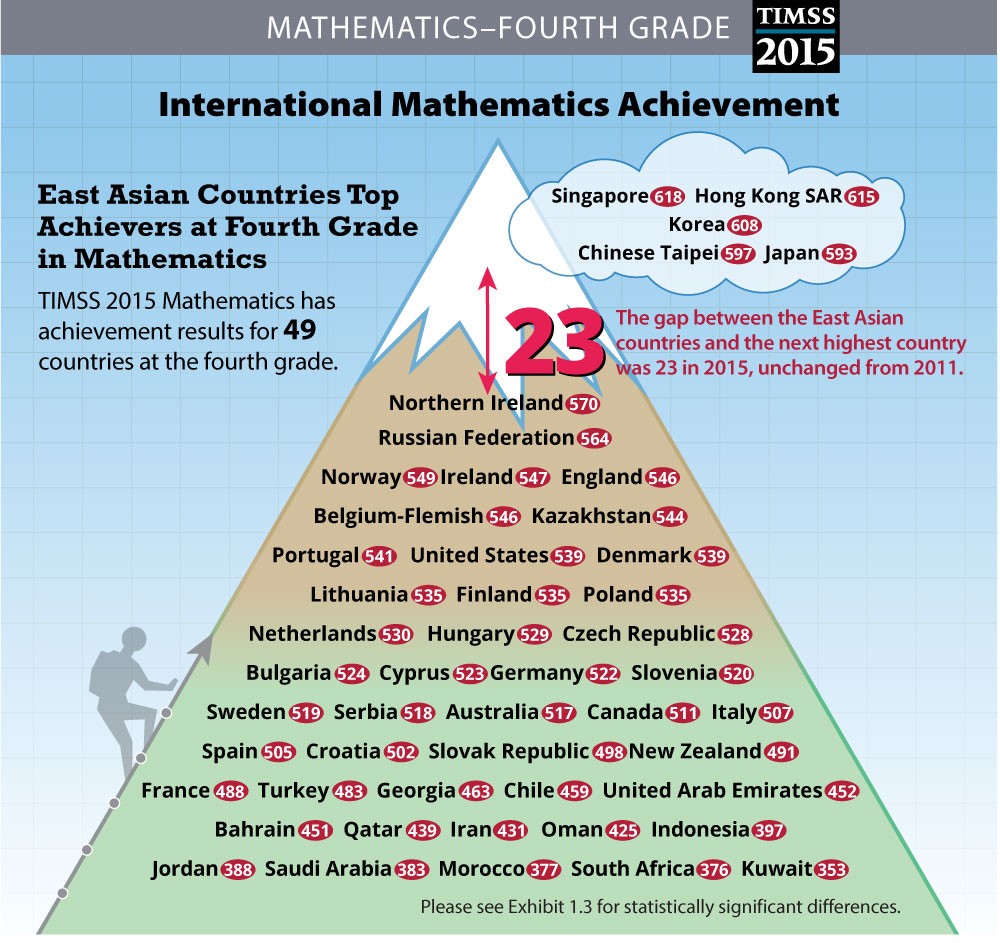Education, Mathematics
Too Much, Too Soon? A Call for Developmentally-Appropriate Mathematics Expectations.
An examination of expectations from around the world indicates children are expected to master complex mathematical concepts at different ages and rates.
Consider these objectives (relating to counting and one-to-one correspondence) for children starting school in different countries.
[table “” not found /]Implications
Children in Ireland have 2 years to become facile with numbers to 10. Their counterparts in the UK are expected to master this in their reception year. Younger children are at a distinct disadvantage when measured against older classmates. Pushing children to achieve the same objectives can undermine their self-confidence and create a negative attitude towards mathematics, causing long-term repercussions.
Country Comparisons
This OECD PISA data (2012) showing Mean School Starting Age is useful when framing a discussion on curriculum objectives and overall outcomes. The TIMSS 2015 report is an excellent source of information on international student achievement. This infographic (taken from the report) shows 4th grade achievement levels in 49 countries and demonstrates clearly how far ahead East Asian countries are in terms of attainment.

What do those countries do that enables them to be so successful?
Let’s consider world no.1 Singapore. Below are some of the features of mathematics education.
- The mean school starting age is 6.7 years.
- There is a belief all children can learn anything once it is presented in an accessible way and they apply themselves to mastering it.
- Fewer topics are taught but teaching is in-depth to mastery level.
- A whole-class direct instruction methodology is employed.
- Pupils are taught using the CRA (Concrete – Representational – Abstract) strategy.
- Mental mathematics is strongly emphasised.
- Children are taught to represent problems pictorially. They apply this skill to complex multi-step word problems with greater ease than their peers elsewhere.
Separately, education is highly-valued in Singapore and teachers are respected. They are drawn from the top third of graduates, receive excellent training and are then encouraged to improve their practice, with time allocated during the school day to do so (e.g. for partaking in lesson observations).
Of course, it is not all perfect. There are concerns the Singaporean system is too rigid with few opportunities for pupils to develop creative thinking. Moreover, pressure to do well in mathematics sees many pupils having extra tuition.
However, there are lessons to learn, especially as regards taking the time to ensure concepts are embedded and ensuring children are not expected to think in an abstract way before they are developmentally able to.
